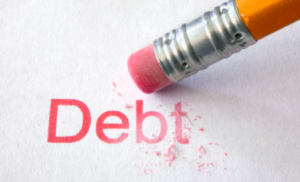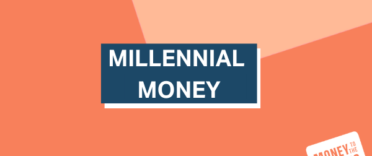 Making a plan to clear your personal loan debt is an important step towards taking control of your finances. Debt can be stressful to deal with and sometimes confusing, but with the right plan in place you can get on the road to being debt free and more financially stable. In this article we explore the top-5 ways to deal with loan debt, including ways to pay it off early, reduce the amount of interest you pay or get help for problematic debt.
Making a plan to clear your personal loan debt is an important step towards taking control of your finances. Debt can be stressful to deal with and sometimes confusing, but with the right plan in place you can get on the road to being debt free and more financially stable. In this article we explore the top-5 ways to deal with loan debt, including ways to pay it off early, reduce the amount of interest you pay or get help for problematic debt.
Top-5 ways to tackle personal loan debt
Here are our top-5 ways to tackle your personal loan debt and begin your journey to living debt free:
1. Switch to a cheaper deal
There are two options for transferring your loan to another lender in order to reduce your payments: look for a cheaper deal at a lower rate or opt for a shorter loan term. Cutting down the loan term will reduce the total amount of interest you pay, but increase the monthly payments. Both options can save you money, with a better interest rate serving to reduce your monthly payment, while reducing the loan term but paying the same rate will make your monthly payments higher, but will save you money on interest over the lifetime of the loan. The holy grail is to find a deal that offers a lower rate and a shorter term, although this is easier said than done.
A good starting point is to check your credit score with the credit reference agencies Experian, Equifax and TransUnion. You can check them for free with ClearScore (Equifax), MSM Credit Monitor (TransUnion) or MSE Credit Club (Experian). Many of the credit-score checker sites, including also Credit Karma and TotallyMoney, match you with loan and other credit products from its panel of partners based on your credit rating, so it can give you a good indication of the rates you are likely to be able to get and your chances of being approved.
Before you look to switch to another deal, you will first need to get a settlement figure from your current lender, which outlines how much you will need to pay in order to pay off the loan and close the account. At this point, you will also need to check if there is a financial penalty for paying the loan off early by transferring the debt to another lender. By taking into account all of the fees, as well as the total amount outstanding on the loan, you can work out if it is worthwhile transferring the debt and if it will save you money.
2. Transfer the debt to a credit card
If you're hoping to make the most of the interest-free period on a credit card to pay off personal loan debt, you might consider taking out a money-transfer credit card. This enables you to transfer money from the card to your bank account, which you can then use to repay your outstanding loan debt. The balance on the card will not grow with interest during the introductory period, which can last over a year.
The key to making this work is ensuring you repay the full balance on the credit card by the end of the introductory period, otherwise you will pay interest on the remaining balance. There is more information on using this strategy, including the advantages and disadvantages, in our article 'Can I use a credit card to clear loan debt - and is it a good idea?'.
We have teamed up with Creditec* to help you compare credit card deals and check your eligibility in minutes. You will be able to find out which credit cards you are most likely to be accepted for through a soft credit check, which will not affect your credit score. You can then tailor your personalised list to sort cards by the features that matter most to you. This could mean filtering for the type of credit card you want, sorting the list by the rate of interest or highlighting the cards you are most likely to be successful in applying for. You can click here to compare deals*.
3. Consider a secured loan
If you are juggling the payments on several loans or other credit agreements, you could consider taking out a secured loan in order to consolidate all of your debts. The appeal of doing this is that it can substantially reduce your monthly payment and simplify your finances, as you no longer have to keep track of debt across a number of different lenders. However, a secured loan, as the name would suggest, uses a valuable item – usually your home – as collateral against the debt. This means that if you don't keep up with repayments, your property may be repossessed.
Another issue with secured loans is that they tend to be paid over a much longer period of time, often in line with your mortgage term, which means that while your monthly repayment is lower, you will end up paying a great deal more in interest. This can easily run into thousands of pounds over the lifetime of the loan.
4. If possible, overpay
Overpaying your loans – always starting with the most expensive one first – not only means you can clear the debt faster, but can also give you greater flexibility over how to manage your debt in the future. This is because lenders will generally look favourably on borrowers who have previously overpaid if there comes a time when you need to restructure payments or take a short payment holiday.
You will need to check with your lender what its terms and conditions are on making overpayments, either through regular payments or in one-off lump sums. There can sometimes be a charge for paying off the debt early, although most will permit you to overpay by a certain percentage each year without attracting a penalty.
It's good practice to channel any windfalls or bonuses into paying off your debt. You may also be able to free up extra cash by effectively budgeting and managing your day-to-day spending. There are a plethora of budgeting apps available to help you with this process, with some banks now also offering a breakdown of your spending and allowing you to set savings goals.
5. If you're in serious debt, get independent advice
If your debt burden has become unmanageable and you can no longer keep up with repayments – perhaps you are dealing with debt recovery agencies or being threatened with CCJs or repossessions – there are avenues open to you that can help improve your situation. We cover what free debt help is available in our article 'Where to get free debt advice'.
In the first instance, it is a good idea to speak to your creditors and see if there is any help or support they can offer. There may be the option to come up with a more realistic repayment schedule or a short payment holiday to help you get back on your feet.
Following on from that, there are options such as individual voluntary arrangements (IVAs), where you come to an agreement to repay your debts over a set period of time, or a debt relief order (DRO), which means some debts will be written off immediately and any remaining debts will be written off after a year. There is also the possibility of entering into bankruptcy. None of these options should be entered into lightly, with all of them having a dramatic impact on your overall financial health and your ability to borrow in the future. With this in mind, make sure you get some free, independent advice. These organisations all offer a free debt-help service:
If a link has an * beside it this means that it is an affiliated link. If you go via the link Money to the Masses may receive a small fee which helps keep Money to the Masses free to use. But as you can clearly see this has in no way influenced this independent and balanced review of the product.






